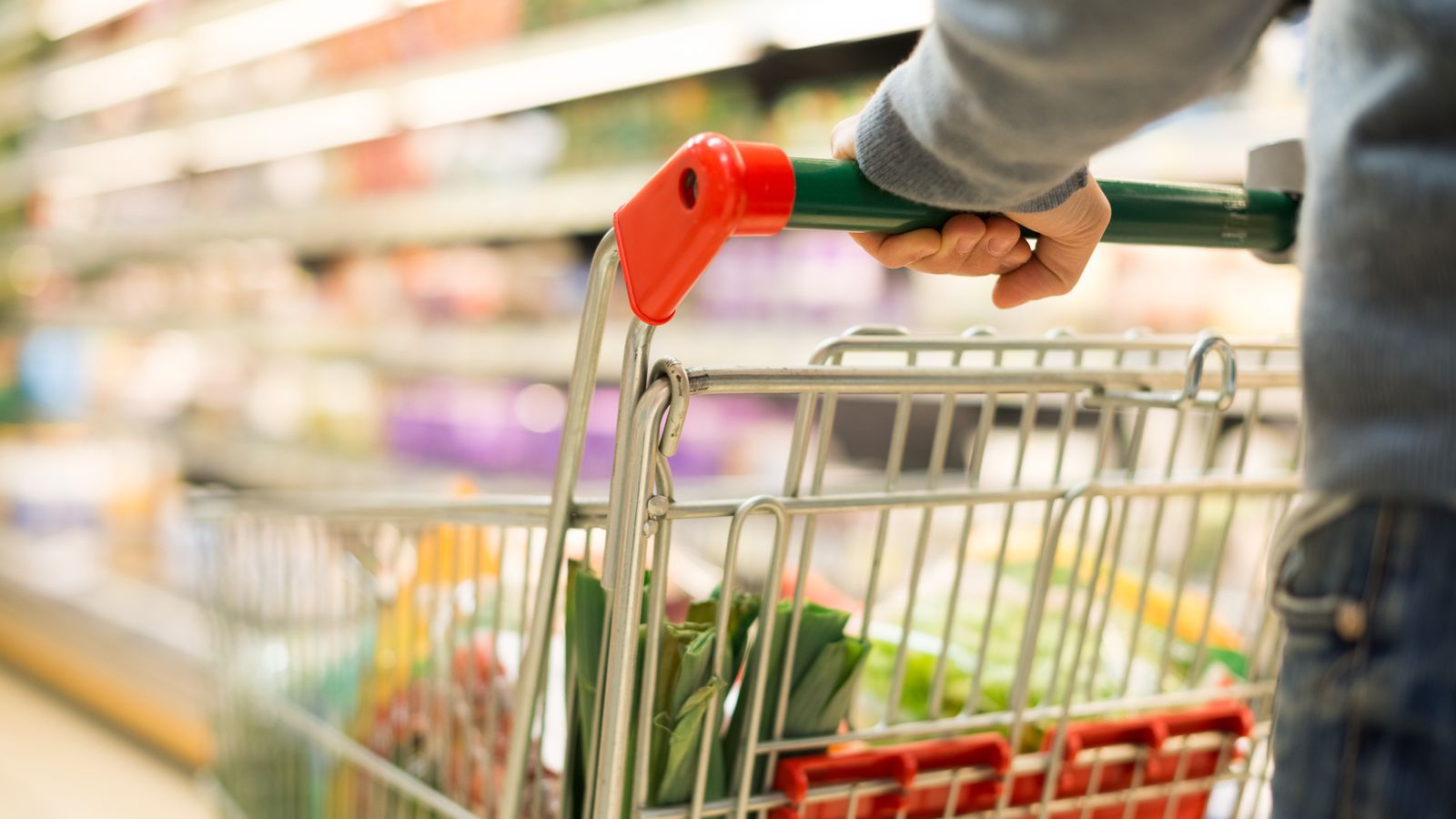The rate of grocery inflation eased considerably over the past month, part-aided by a “jump in the amount of money spent on offers”, according to a closely-watched study.
Kantar Worldpanel, which records supermarket sales and price data, said the annual rate of grocery inflation fell back to 11% over the four weeks to 1 October.
Its last report, a month ago, had measured a rate of 12.2%.
The data credited the price war between supermarket chains for the slowdown, adding that an increase in spending on discounted goods was also responsible as shoppers continue to hunt bargains amid the continuing cost of living crisis.
It was building, Kantar said, on drops in the prices of some staple goods compared to a year ago.
The study cited the example of a typical pack of butter which was 16p lower, on average, compared to September 2022.
Spending on promotions, Kantar said, made up over a quarter of all sales in the last 12 weeks – the highest level since June 2022.
It said that amid the rush towards own-label goods during the squeeze on budgets, branded goods were now benefiting from promotional activity as chains moved to bolster customer loyalty ahead of the core Christmas season.
Market leader Tesco was the main beneficiary, it said, as branded promotion sales across the industry hit their highest rate since January this year.
The festive season promises to be a battle to secure business not just within supermarkets but in the wider retail, hospitality and leisure sectors.
Wider data released on Monday covering September suggested budgets were focused on leisure time in the good weather, rather than at the shops.
The British Retail Consortium (BRC) reported that autumn fashion sales were weak, likely due to the sunshine, as food continued to lead spending growth.
The value of retail sales grew by 2.7% in the month but overall volumes were down.
BRC chief executive Helen Dickinson said: “Sales growth in September slowed as the high cost of living continues to bear down on households.
“Big ticket items such as furniture and electricals performed poorly as consumers limited spending in the face of higher housing, rental and fuel costs.”
Figures from card provider Barclaycard suggested discretionary spending was aimed at bars.
The Rugby World Cup drove spending at pubs and bars, it reported, but said that growth slowed on restaurants and takeaways as Brits began saving money for the festive season.
Tom Steel, strategic insight director at Kantar, said of some of the food spending trends: “Sunnier weather last month meant the barbecues stayed out of sheds for another few weeks.
“Shoppers made the most of the higher than average temperatures, with volume sales of ice cream, burgers and dips shooting up by 27%, 19% and 10% respectively.”

